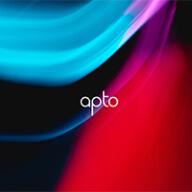Service Blueprint to connect journey & operations
A service blueprint is a visual overview of how an organisation delivers a service to a customer, across all channels and touch points.
Suppose your organisation is a restaurant. On your Service Blueprint, you will find a guest who dines (the customer experience), the interaction with the waitress (the frontstage), and a chef in the kitchen (the backstage). You will see that everything is connected and has an influence on the dining experience. A Service Blueprint gives you the overview that allows you to orchestrate everything to achieve an optimal customer experience.
This sounds more difficult than it is: Use this template and the instructions to make a Service Blueprint yourself! From our experience as service design agency working with lots of organisations, we guide you step-by-step and also provide you with tips and examples for how you can use a Service Blueprint for better collaboration in your organisation.
Our instructions for making your own Service Blueprint:
Service scenario: Identify the service you would like to be blueprinted (i.e. visit a restaurant, buy a product, departure for a flight, etc.), and break it down into a set of steps. This will be your starting point to fill in the Service Blueprint template.
Customer actions: Take your customer's perspective and identify the actions he/she takes or experiences in each of the steps of the service scenario (i.e. enter restaurant, order meal, pay the bill, etc).
Touch points: Identify every interaction that takes place between your organisation and the customer (i.e. telephone, physical, pin machine, etc.). Visualise these touch points in the circles on the 'line of interaction'.
Front stage actions: Define the actions that are taken by your organisation in each of the steps, that are visible to the customer (i.e. welcome guests, take the order, clear the table, etc).
Define the actions that are taken by your organisation in each of the steps that are invisible to the customer (i.e. order to kitchen, cook the meal, dishes, etc) under the ‘line of visibility’.
Supporting processes: Identify processes, systems or tools, that support the front- and back-stage actions. These can be related to IT, HR, Finance, suppliers, etc.
Connections & flow: Use arrows to connect dependencies or correlations between the customer actions, frontstage actions and backstage actions (i.e enter restaurant -> welcome guest).
Update: alternative approach with actors!
We've added a second approach (including template) in which you don't specify actions for front- and backstage, but for all involved 'actors'. This approach is especially useful if you want to get a clear picture who is doing what when in your service delivery, which helps to improve the orchestration of all activities.



Comments
Read our Community Guidelines and Terms of Use.